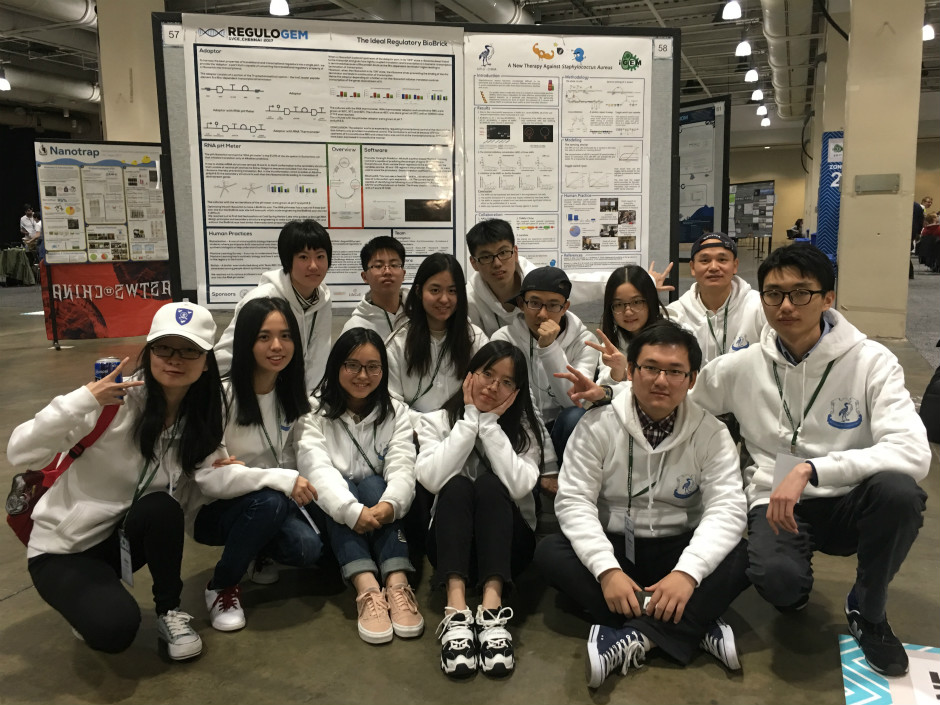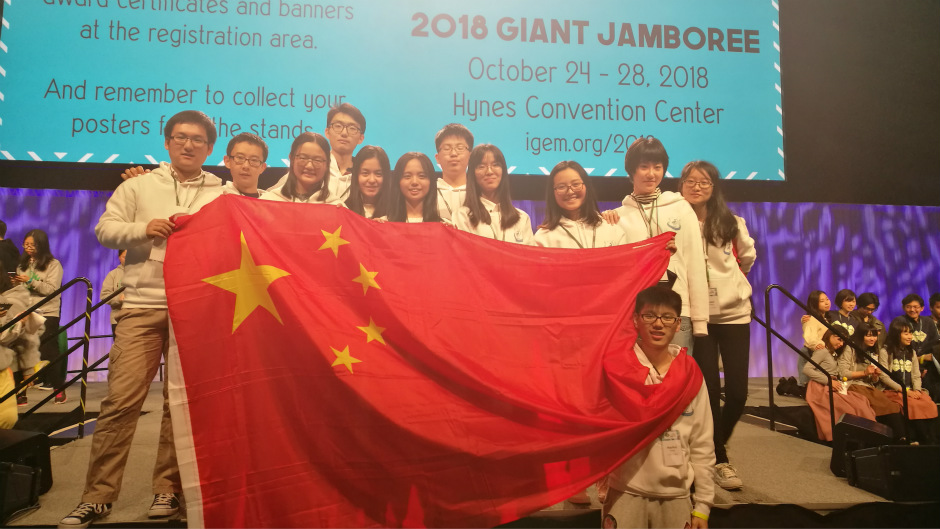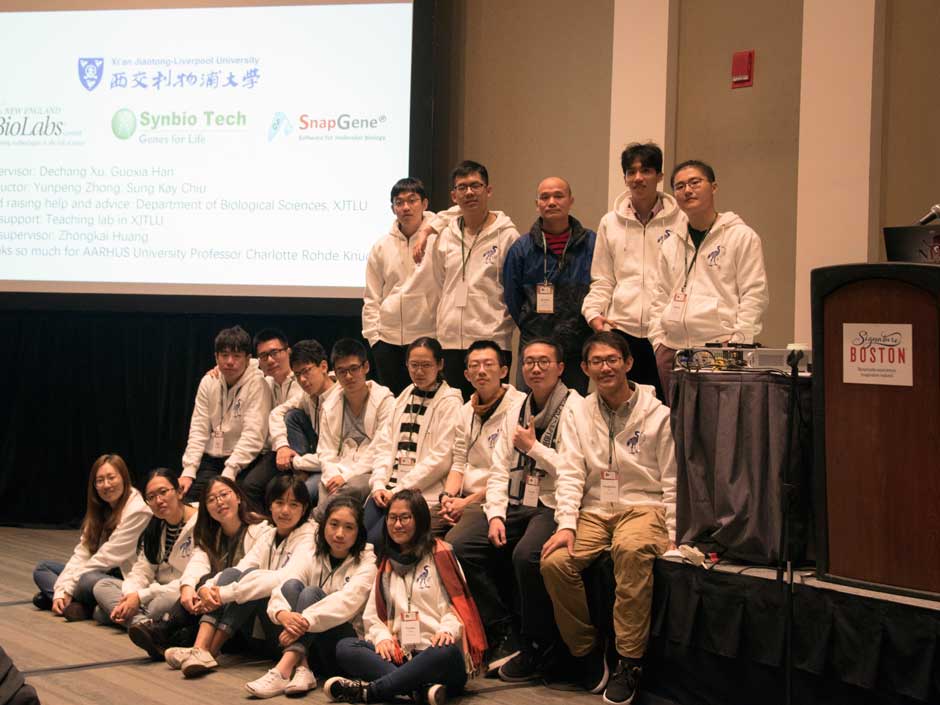01 Dec 2017
A team of Xi’an Jiaotong-Liverpool University students have won the gold prize in the International Genetically Engineered Machine (iGEM) competition in Boston, USA.
Competing against 313 teams from the world's top universities including: Harvard University, University of Oxford, University of Cambridge and Massachusetts Institute of Technology (MIT), this success marks XJTLU winning this competition for the first time and sets the best record in the University’s history to date.

iGEM, known as the World Championship in the field of synthetic biology, is a worldwide synthetic biology competition for undergraduate university students founded by MIT in 2003. During the competition, participating teams create entirely new biological systems by studying the working mechanism of natural biological systems with mathematical modelling.
Embracing the love of synthetic biology, twelve Year Two and Year Three XJTLU students from the Department of Biological Sciences explored and constructed a complex biological system. This system provided new therapy to fight against Staphylococcus aureus (S. aureus) intestinal colonisation by operating basic gene modules in living cells.
S. aureus is a highly toxic bacteria, and intestinal S. aureus colonisation can leads to faecal incontinence, diarrhoea and sometimes even death, however, due to antibiotic overuse, S. aureus develops resistance to various antibiotics and becomes increasingly difficult to be eliminated.
Yijing Gong, team leader of the student team, introduced the concept of their project, and said: “We wanted to engineer Lactococcus lactis genetically to make it detect the presence of S. aureus, and then Lactococcus lactis would release antimicrobial peptides (AMPs) with a strong anti-bacterial effect to eradicate S. aureus.”
“We also used logic gate to effectively control the entire biological circuit,” she continued. “In this way, we could not only cure S. aureus infection, but also make probiotics live in the intestine and regulate the micro-ecological balance.”

The team was supervised by Dr Guoxia Han and Dr David Chiu from the Department of Biological Sciences, Professor Dechang Xu, head of Research Office at XJTLU, external mentor Yunpeng Zhong, and Zhongkai Huang and Sijing Meng from the Biological Science Laboratory.
In the competition, students successfully constructed engineering bacteria that release AMPs to cure intestinal S. aureus colonisation and in the end won the first prize.
According to Dr David Chiu, this year's project was more practical and developed from a brainstorm meeting of the participating students. “If the project outcomes can be put into practice, it may benefit society,” said Dr Chiu.
He thought this was a very precious experience to all of the participating students since: “They have learnt how to work independently, search for relevant information, acquire molecular biological skills, and collaborate within the team and between teams from other universities.”
Yijing and other students also realised the importance of attention to detail and rational division of labour through teamwork during the competition. “We hope our efforts can benefit the whole society,” Yijing expressed her expectations. “Also it will be good if others can understand more about synthetic biology from our project and apply the knowledge to unresolved problems.”
By Yaqi Fu, photos provided by Yijing Gong
Translation by Qiuchen Hu, edited by Guojuan Wang and Jacqueline Bánki
01 Dec 2017
RELATED NEWS

XJTLU success again at international synthetic biology competition
A team of Xi’an Jiaotong-Liverpool University students won a silver prize at an international synthetic biology competition in Boston, USA, adding to the Uni...
Learn more








